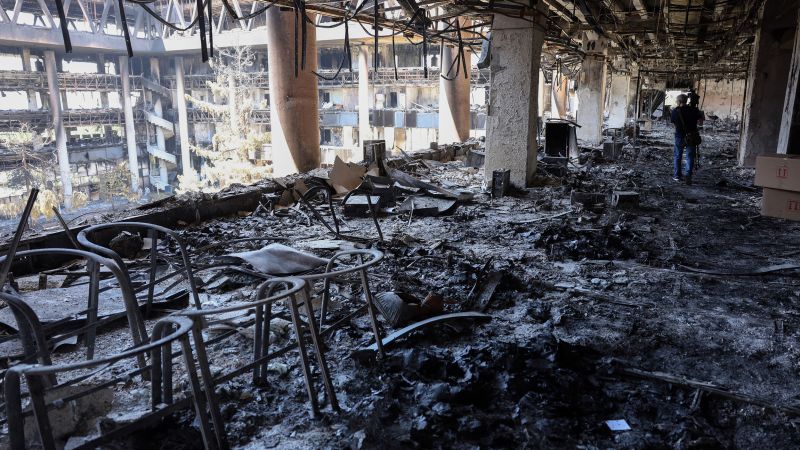Israel-Iran Tensions: A New Cold War? Global Powers Align as Middle East Conflict Escalates
2025-06-17

Daily Mail
The escalating conflict between Israel and Iran is rapidly reshaping global geopolitics, drawing nations into stark allegiances and exposing a deepening divide between the East and West. As casualties mount and the threat of a wider regional war looms large, the international community struggles to maintain restraint while simultaneously signaling support for specific sides. This article examines the shifting alliances, the underlying causes of the conflict, and the potential consequences for global stability.
A Region on the Brink
The recent events have plunged the Middle East into a state of heightened tension. The initial spark, and its subsequent repercussions, have triggered a chain reaction of diplomatic maneuvering and military posturing. While calls for de-escalation echo from international forums, the reality is that nations are increasingly taking sides, solidifying existing geopolitical fault lines. The risk of a broader conflict, potentially involving other regional actors and even global powers, is a very real and concerning possibility.
East vs. West: A Resurgence of Cold War Dynamics
What makes this conflict particularly significant is the way it highlights a resurgence of Cold War-era dynamics. The responses from major global powers reveal a clear division: some aligning with Israel and the West, while others express support for Iran and its regional allies. This isn't merely about the immediate conflict; it reflects a broader struggle for influence and power in a multipolar world. China's stance, for example, has been carefully calibrated, emphasizing de-escalation but also reflecting a growing assertiveness on the world stage. Russia, similarly, has positioned itself as a mediator while maintaining close ties with Iran.
Key Players and Their Alignments
Let's break down some of the key players and their positions:
- United States: Remains firmly committed to Israel's security, providing military and diplomatic support. The US has also warned Iran against further escalation.
- European Union: Largely echoing the US stance, urging restraint but expressing solidarity with Israel. However, some EU members are advocating for a more nuanced approach, recognizing the need to engage with all parties.
- China: Calls for a ceasefire and a return to diplomacy, while maintaining economic ties with both Israel and Iran. China’s strategic interests lie in regional stability and avoiding disruptions to global trade.
- Russia: Positioning itself as a mediator, offering to facilitate negotiations. Russia's relationship with Iran is particularly strong, rooted in shared geopolitical interests and a desire to counter Western influence.
- Iran: Views the conflict as a response to perceived threats to its national security and regional influence. Iran has vowed to retaliate against any attacks on its interests.
The Underlying Causes: A Complex Web of Factors
The current crisis is not a sudden eruption but the culmination of decades of complex geopolitical factors, including:
- The Israeli-Palestinian Conflict: The ongoing tensions and unresolved issues continue to fuel instability in the region.
- Iran's Nuclear Program: Concerns over Iran's nuclear ambitions remain a major source of contention.
- Proxy Wars: The region is rife with proxy conflicts, where regional powers support opposing sides in various conflicts.
- US Foreign Policy: US involvement in the Middle East, including military interventions and alliances, has significantly shaped the regional landscape.
Looking Ahead: Potential Consequences
The ramifications of this conflict are far-reaching. A wider regional war could destabilize global energy markets, disrupt international trade, and lead to a humanitarian crisis. The deepening East-West divisions could further complicate efforts to address global challenges such as climate change and pandemics. Ultimately, a diplomatic solution is essential, but achieving it will require a concerted effort from all parties involved, a willingness to compromise, and a recognition of the shared interest in regional stability.






